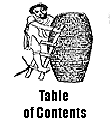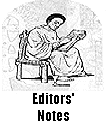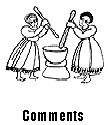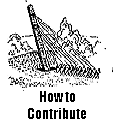
, Question 1
 #1: What does modernity mean to you? Berhanu Yalew Yihun Western Renaissance and Enlightenment, over the past two centuries or so, are said to have produced a substantially new society built around such universal values of science, individualism, and industrial capitalism. If civilization is the condition a society attains when it emerges from barbarism and begins to apply intelligence systematically to the problems of human life, then modernity presumably entails people purposefully changing their relationship with the world and among themselves. Here is an apologist’s perspective that mechanically equates Westernism with modernity/modernism: The cultural foundation of this society, if we state it as a set of explicit theses, was the view that reason, not revelation, is the instrument of knowledge and arbiter of truth; that science, not religion, gives us the truth about nature; that the pursuit of happiness in this life, not suffering in preparation for the next, is the cardinal value; that reason can and should be used to increase human well-being through economic and technological progress; that the individual person is an end in himself with the capacity to direct his own life, not a slave or a child to be ruled by others; that individuals have equal rights to freedom of thought, speech, and action; that religious belief should be a private affair, tolerance a social virtue, and church and state kept separate; and that we should replace command economies with markets, warfare with trade, and rule by king or commissar with democracy. If we take out the stuff about democracy (state socialism and fascism are also products of modernity) and about absolute supremacy of science/secularism over religion (which is grossly exaggerated), the quotation captures the essence of modernity. What I find fascinating is how modern pre-Italian Abyssinian (i.e., highlander) society was: its highly developed individualism, its nucleation of the family and the independent household (quite bourgeois, wouldn’t you say?), its ethos of equality before God and, on the basis of merit, before his aleqa as well as between the sexes (at least in the realm of property rights and divorce), tolerance for religious differences, and deference to highly developed State and Church/Mosque authority. The Proof: look how easily the children of the pre-moderns have adapted to the world of the post-moderns in the Diaspora! In the overall scheme of evolution, two or three hundred years mean very little,
or so I hope. The "broad masses" still have to work on acquiring a
scientific outlook, separating the secular from the sacred to a sufficient degree,
replacing warfare with trade, and replacing autocracy with some sort of accountable
government. Dr. Fekade Azeze "Modernity" to me is a very relative word. I cannot use it in the manner it is used in its country of origin. I believe it had its own beginnings, contexts and evolution. Therefore I am not qualified to use it expertly. Allow me to be a bit reflective. For me, "modernity" is a way of life, a way of being. It is knowing who, what, where I am and trying to persistently "create" (like "God", if you like) an improved version of myself after examining the realities and possibilities around me (i.e. within my own immediate environs, my country of origin and outside of it) today, and making every effort to strike a realistic and pragmatic balance between my needs and wishes, and the resources I have at my disposal to realize them. This is how I understand this relative term, always within a context of time and space. One can think of a community, a region or country in the same way. Ato Gaitachew Bekele

|

|

|

|

|

|
| © Copyright SELEDA Ethiopia, July/August 2002. All Rights Reserved. |